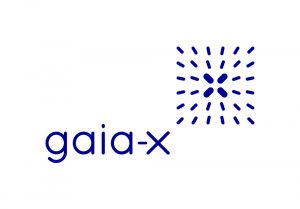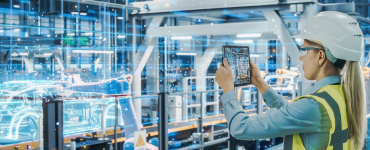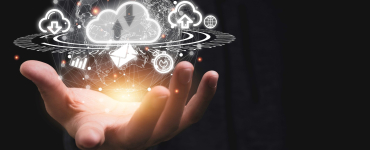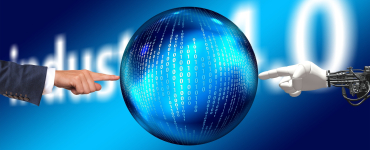- Up to 22 percent growth potential per annum for Industrial IoT (IIoT)
- Gaia-X will link data ecosystems and infrastructure ecosystems
- eco Association coordinating specification of Gaia-X Federation Services
As the Hannover Trade Fair 2021 has demonstrated, Internet-based solutions are gaining relevance and momentum in German industry – spanning from automation in mechanical and plant engineering (industrial IoT), to digital innovations in mobility, and onwards to smart concepts in the education or health sectors. What’s more, a catalyst effect instigated by the Corona crisis is boosting digital transformation. The study “The Internet Industry in Germany 2020-2025”, published by eco – Association of the Internet Industry and Arthur D. Little in 2020, envisages an annual pandemic-related growth potential of 17 to 22 percent.
“In the German industry, predictive maintenance and smart services are driving digitalisation, which is replacing rigid protocols with proactive production and maintenance processes,” says Andreas Weiss, Head of Digital Business Models at the eco Association. “Due to the enhanced use of artificial intelligence (AI), the need for high-performance Internet connectivity – such as via 5G and soon 6G – is also increasing in small businesses, right down to the production floor.”
GAIA-X stands for European data sovereignty
As such, more and more swathes of data are being generated by European companies, organisations and administrations, with this data being evaluated and used partly with the help of artificial intelligence. The spectrum ranges from edge computing to cloud computing to hyperscalers. In the coming years, Gaia-X will help to maintain complete control over this data on a long-term basis and enable independent decisions to be made on who has access to it. “Small and medium-sized enterprises, global players, and not least public administration require orientational support concerning the availability of trustworthy infrastructures,” says Weiss.
To see this come to fruition, the eco Association is currently coordinating the Gaia-X Federation Services. The first specification round, which is on the verge of being completed, focuses on services for sovereign identities, a catalogue for providers and services, processes for sovereign data exchange and compliance considerations. As it nears the completion of the requirements specification phase, the Project Management Office is on the brink of inviting tenders for the individual subsections.
Supporting digitalisation of production sites
“On an open source basis, the Gaia-X Federation Services specify how industrial companies can retain full sovereignty over their growing volumes of data at production sites,” states Weiss. Later, they themselves can decide who gets access to which data and via which platforms and public clouds they want to network with their partners. SME suppliers can link their plants with the digital production platforms of their customers – for example, car manufacturers – with full data sovereignty.
The end result will be a federated and interoperable overall ecosystem. “The Gaia-X framework which we’re working towards will link implemented data ecosystems and infrastructure ecosystems. All data and service offerings will be transparent and dependencies on individual providers, so-called ‘lock-in effects’, will be reduced,” says Weiss. The goal is to build a European data infrastructure for the secure digitalisation and interconnection of industry.




